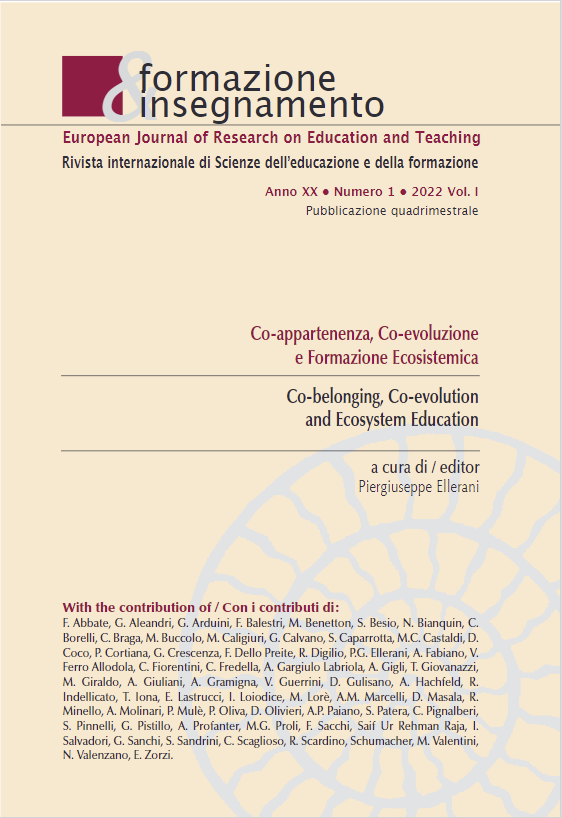Civic Education in the Education Ecosystem: Spaces for Democratic Participation and Meaning of Life
DOI:
https://doi.org/10.7346/-fei-XX-01-22_17Keywords:
Civic education, Relational paradigm, Democracy, Meaning of life, Systemic and ecological visionAbstract
Civic education in school is seen as a support pathway for building student identity, which is accomplished through a process of identification that involves the individual relating with and becoming integrated into the community, applying the principles of co-belonging and co-evolution in open systems. Accordingly, civic education in school translates methodologically into an interdisciplinary pathway along which sciences and disciplines are considered, ecologically, as systems interacting one with another. This enables understanding of how the person-citizen acts and reacts within a complex ecosystem, which in turn leads to an awareness of human participation in a network of relations that does not reflect a reductionist and mechanistic view of life, but rather, one that is systemic, process-oriented and changeable. Adopting the method of complexity as the way humankind inhabits planet Earth, the approach can be taken up by education and help to build a regenerated humanism, one that is civil and democratic, providing a guideline for development of the person-citizen.
Downloads
Published
How to Cite
Issue
Section
License
Copyright (c) 2022 Mirca Benetton

This work is licensed under a Creative Commons Attribution 4.0 International License.
Formazione & insegnamento is distributed under Attribution 4.0 International (CC BY 4.0).
For further details, please refer to our Repository & Archiving Policy, as well as our Copyright & Licensing Terms.





